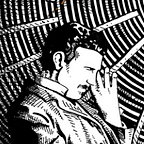Nicole Tone talks about freedom and bravery in 1970s Buenos Aires in Betancourt’s novel.
Ingrid Betancourt
Fiction | Novel | 368 pages | 5.9” x 8.6” | Reviewed: Hardcover
978–1594206580 | First Edition | $27.00
Penguin Press | London, U.S., Canada | BUY HERE
Told through a nonlinear timeline, the reader is taken on a journey through Julia’s past and present and how her special gift — her ability to see into the future — simultaneously saved her life and, in a way, ended it. This book is not for the faint of heart; Betancourt goes into great detail about the truths of what it meant to live in Buenos Aires in the 1970s. For young Julia, this meant getting captured and tortured multiple times because she dared fight for what she thought was right. For modern day Julia, however, it is these very scars that would force Julia and Theo, with whom she’d been in love since she was fifteen, apart.
Betancourt’s frank writing style does nothing to sugarcoat the slum Julia grew up in or the pain, emotional and psychological, she experiences as a prisoner both to death squadrons and to her marriage. This book will cause the reader to question his own definition of freedom — of free speech, of being able to leave, of freedom in a relationship — and the lengths he would go to obtain it. There is no denying Julia’s bravery, as it was what kept me turning the page. In the moments that she was begging for death, I, too, felt this desperation. I didn’t want her to suffer anymore, despite knowing that she made it out alive.
Betancourt’s style made this possible — to witness Julia’s torture, the pain she endured, without pushing new limits with language. Every reader is Julia’s witness to the horrible things that happened in Argentina. Every reader is there with her in the trunk of the car as she follows her husband to his mid-afternoon rendezvous. The language isn’t what had me swept up in this story, not by any means. Instead, it was the emotions, the multitude of them, that sunk a hook in me and kept me hopeful that Julia would finally be safe and free.
This review has been moved from its original home on The Spark blog, where it was first published on February 25, 2016. The Spark is now defunct, and all stories have migrated to The Coil for posterity.
